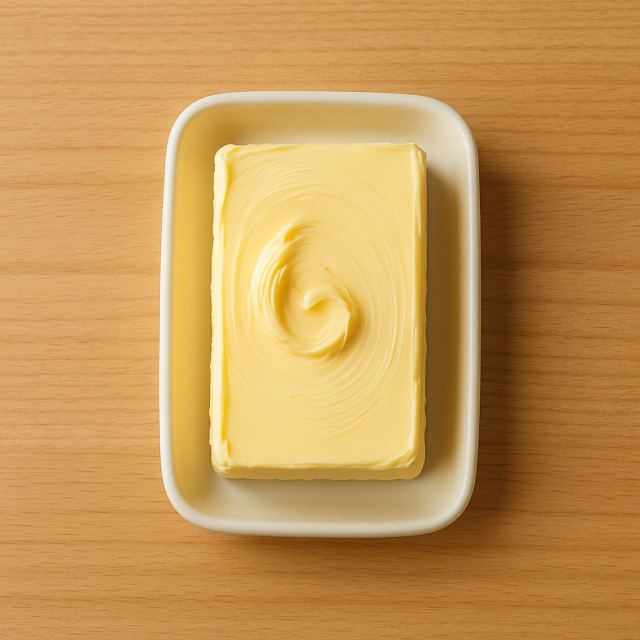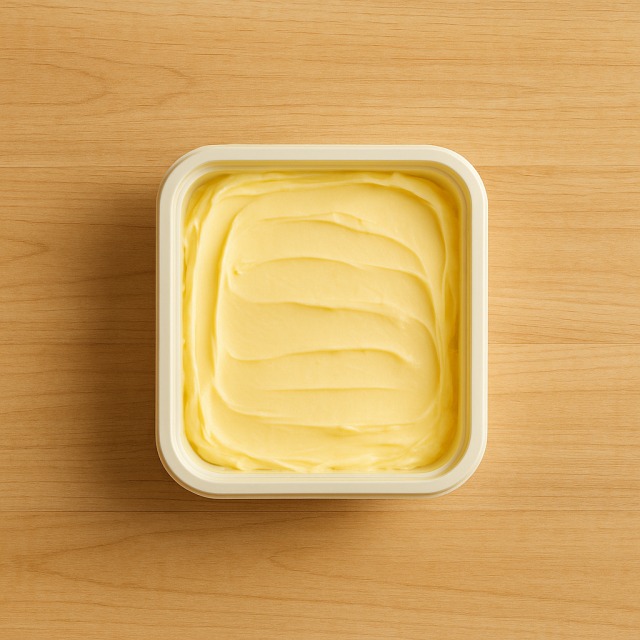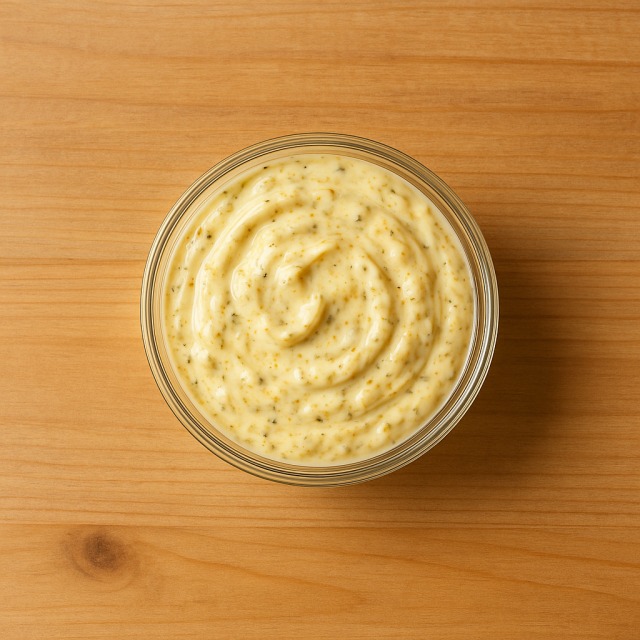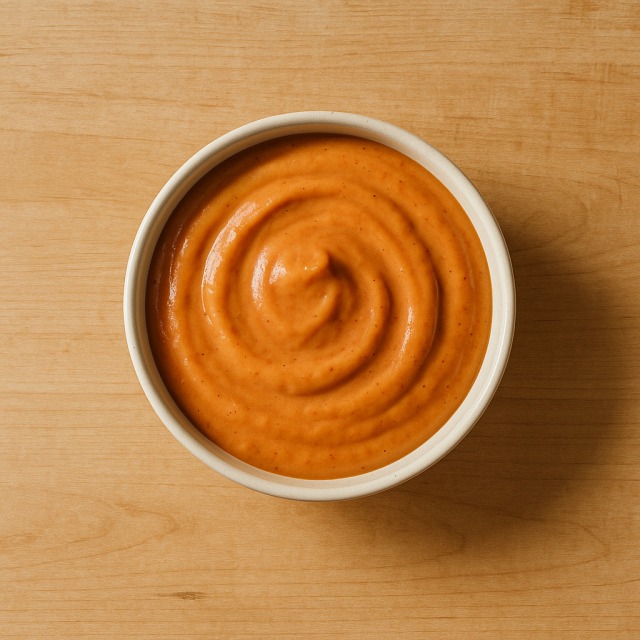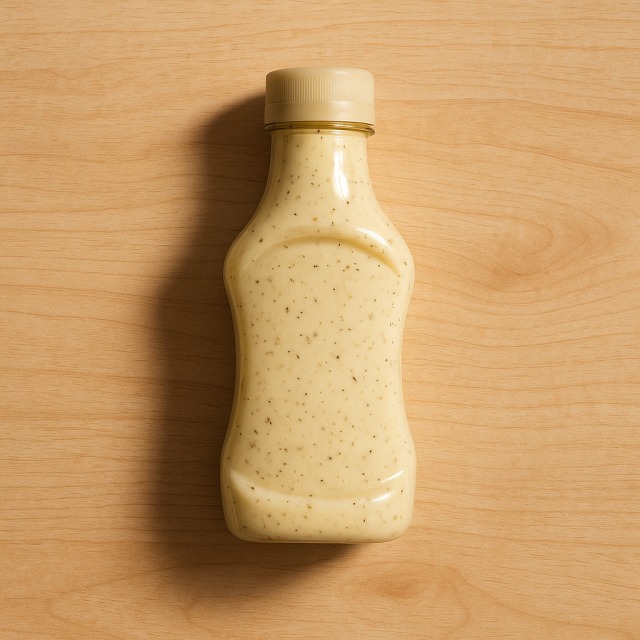Calorie Chart / Seasoning & Sauces / Butter - Light
How Many Calories Are in Light butter?
Calculation of the nutritional value & Recommended Dietary Intake of light butter
For g and a calorie requirement of kcal
| Calories 40 kcal | Proteins 0.7 g | Lipids 4.1 g | Carbohydrates 0.1 g |
| 2% | 1% | 6% | 0% |
Health benefits of light butter
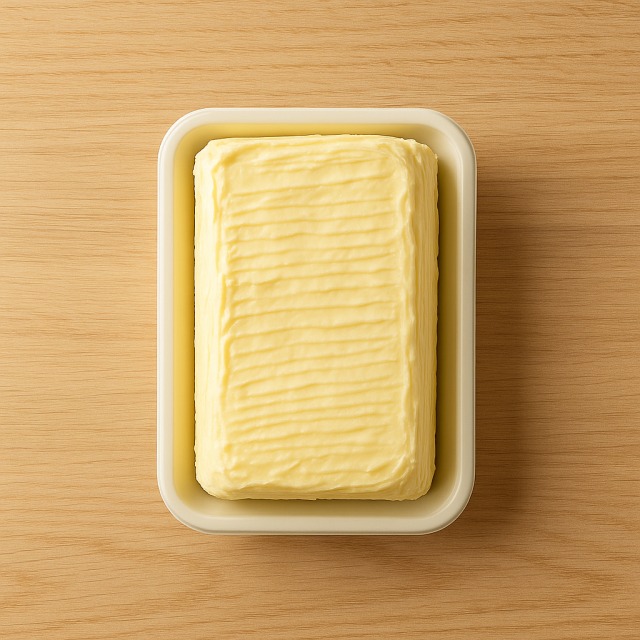
Light butter - 100g
Calories 401 kcal
Proteins 7 g
Lipids 41 g
Carbohydrates 1 g
With 401 calories per 100 g, light butter is a moderate-calorie alternative to regular butter, which usually tops 740 calories. Opting for it can therefore help you cut daily calories without giving up the characteristic buttery taste. Those calories come essentially from 41 g of lipids, but the fat is partly lowered and often contains more unsaturated fatty acids than classic butter, slightly improving the lipid profile.
Light butter remains a useful source of fat-soluble vitamins: vitamin A supports night vision and skin health, vitamin D contributes to bone mineralization, while vitamins E and K provide antioxidant and blood-clotting functions. It also supplies small amounts of calcium, phosphorus, and the short-chain fatty acid butyrate, studied for supposed gut-protective effects ("supposed" because data are still limited). Thanks to its reduced fat yet still creamy texture, it can be a smart way to keep flavor high and calories moderate when you are watching your calorie intake for weight control or athletic performance.
Historically, the first commercial light butter appeared in the 1970s, responding to the growing demand for lower-calorie spreads. Manufacturers usually whip extra water or cultured skim milk into the emulsion; this simple process explains how the calorie count can be roughly 40% lower than traditional butter while preserving spreadability and that familiar dairy aroma.
Tips for incorporating light butter into a balanced diet
Because every teaspoon of light butter carries fewer calories than its full-fat cousin, you can use it to finish steamed broccoli or sautéed carrot without pushing the meal's calories sky-high. Melting one tablespoon into a bowl of hot brown rice adds flavor, protein, and a gentle sheen while containing markedly fewer calories than the same quantity of regular butter.
In baking, replace half of the fat in classics such as mashed potatoes gratin or a vegetable tart with light butter to shave off dozens of calories per serving. The water content helps keep cakes moist, so you may even reduce added milk. For athletes counting macros, spreading 10 g of light butter on a slice of wholemeal bread supplies only about 40 calories, a practical pre-workout snack when paired with a hard-boiled egg.
Remember that, even in its lighter version, butter still delivers concentrated energy; measure portions with a teaspoon and keep an eye on total daily calories if your goal is weight loss. Conversely, if you struggle to eat enough calories, a generous tablespoon on hot potato purée can raise energy intake without large food volume.
Frequently Asked Questions
- How many calories are in light butter?
- Light butter provides 401 kcal per 100 g.
- Is light butter really lower in calories than regular butter?
- Yes. Classic butter averages around 730–750 kcal per 100 g, whereas light butter sits at 401 kcal, so you save roughly 45% calories for the same weight.
- Can I use light butter to reduce calories in baking?
- Absolutely. Replacing all or part of the fat with light butter can cut dozens of calories per slice while keeping the texture tender because its higher water content adds moisture.
- How much light butter should I eat if I'm tracking calories?
- A common guideline is 10 g (about one teaspoon), which adds only 40 calories. Adjust upward or downward to fit your personal calorie target.
- Does light butter still supply vitamins despite fewer calories?
- Yes. It retains significant vitamin A and traces of vitamins D, E, and K, so you don't lose micronutrient value when you trim calories.
Similar foods
Information provided by Calorie Menu may contain inaccuracies or errors. It cannot, under any circumstances, substitute medical advice or medication.

